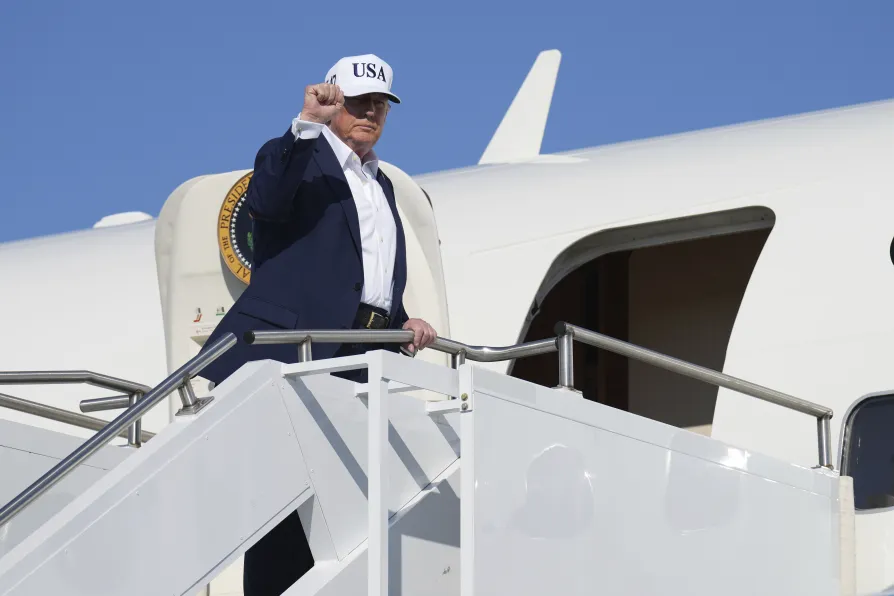
 US President Donald Trump boards Air Force One at Morristown Municipal Airport in Morristown, July 6, 2025, en route to Washington
US President Donald Trump boards Air Force One at Morristown Municipal Airport in Morristown, July 6, 2025, en route to Washington
US President Donald Trump’s administration is stepping up pressure on US trading partners to quickly make new deals before tomorrow’s deadline, with plans for Washington to start sending letters warning countries that higher tariffs could kick in on August 1.
That furthers the uncertainty for businesses, consumers and US trading partners. It also raises questions about which countries will be notified and whether Mr Trump will once more put off imposing the rates.
The president and his trade advisers say he could extend the time for deal-making, but insist the administration is applying maximum pressure on other nations.
White House National Economic Council director Kevin Hassett told CBS programme Face the Nation on Sunday that Mr Trump would decide when it was time to give up on negotiations.
“The US is always willing to talk to everybody about everything,” Mr Hassett said.
“There are deadlines and there are things that are close, so maybe things will push back past the deadline or maybe they won’t. In the end, the president is going to make that judgement.”
The steeper tariffs announced by Mr Trump on April 2 threatened to crash the global economy and lead to broader trade wars.
A week later, after the financial markets had panicked, his administration suspended for 90 days most of the higher taxes on imports just as they were about to take effect.
The negotiating window, open until July 9, has led to the announcement of deals with just Britain and Vietnam.
Mr Trump imposed elevated tariff rates on dozens of nations that run significant trade surpluses with the US, along with a 10 per cent baseline tax on imports from all countries, in response to what he called an economic emergency.
There are separate 50 per cent tariffs on steel and aluminium and a 25 per cent tariff on cars.













